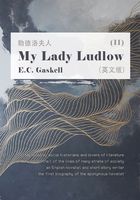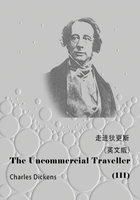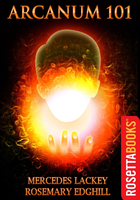I found this manuscript in 1982 in that forgotten 'archive' attached to the governor's office in Gebze that I used to rummage through for a week each summer, at the bottom of a dusty chest stuffed to overflowing with imperial decrees, title deeds, court registers and tax rolls. The dream-like blue of its delicate, marbled binding, its bright calligraphy, shining among the faded government documents, immediately caught my eye. I guessed from the difference in handwriting that someone other than the original calligrapher had later on, as if to arouse my interest further, penned a title on the first page of the book: 'The Quilter's Stepson'. There was no other heading. The margins and blank pages were filled with pictures of people with tiny heads dressed in costumes studded with buttons, all drawn in a childish hand. I read the book at once, with immense pleasure. Delighted, but too lazy to transcribe the manuscript, I stole it from the dump that even the young governor dared not call an 'archive', taking advantage of the trust of a custodian who was so deferential as to leave me unsupervised, and slipped it, in the twinkling of an eye, into my case.
At first I didn't quite know what I would do with the book, other than to read it over and over again. My distrust of history then was still strong, and I wanted to concentrate on the story for its own sake, rather than on the manuscript's scientific, cultural, anthropological, or 'historical' value. I was drawn to the author himself. Since my friends and I had been forced to withdraw from the university, I had taken up my grandfather's profession of encyclopaedist: it was then that it occurred to me to include an entry on the author in the history section – my responsibility – of an encyclopaedia of famous men.
To this task I devoted what spare time remained to me after the encyclopaedia and my drinking. When I consulted the basic sources for the period, I saw right away that some events described in the story bore little resemblance to fact: for example, I confirmed that at one point during the five years Koprulu served as Grand Vizier a great fire had ravaged Istanbul, but there was no evidence at all of an outbreak of disease worth recording, let alone of a widespread plague like the one in the book. Some of the names of viziers of the period had been misspelled, some were confused with one another, some had even been changed. The names of imperial astrologers did not match those in the palace records, but since I thought this discrepancy had a special place in the story I didn't dwell upon it. On the other hand, our 'knowledge' of history generally verified the events in the book. Sometimes I saw this 'realism' even in small details: for example, the historian Naima described in similar fashion the Imperial Astrologer Huseyn Efendi's execution and Mehmet IV's rabbit hunt at Mirahor Palace. It occurred to me that the author, who clearly enjoyed reading and fantasizing, may have been familiar with such sources and a great many other books – such as the memoirs of European travellers or emancipated slaves – and gleaned material for his story from them. He may have merely read the travel journals of Evliya Chelebi, whom he said he knew. Thinking the reverse might just as well be true, as other examples could show, I kept trying to track down the author of my story, but the research I did in Istanbul libraries dashed most of my hopes. I wasn't able to find a single one of all those treatises and books presented to Mehmet IV between 1652 and 1680, neither in the library of Topkapi Palace nor in other public and private libraries where I thought they might have strayed. I came across only one clue: there were other works in these libraries by the 'left-handed calligrapher' mentioned in the story. I chased after them for a while, but only disappointing replies came back from the Italian universities I'd besieged with a torrent of letters; my wanderings among the tombstones of Gebze, Jennethisar, and Uskudar graveyards in search of the name of the author (revealed in the book itself though not on the title-page) were also unsuccessful, and by then I'd had enough: I gave up following possible leads and wrote the encyclopaedia article solely on the basis of the story itself. As I feared, they didn't print this article, not, however, for lack of scientific evidence, but because its subject was not deemed to be famous enough.
My fascination with the story increased even more perhaps for this reason. I even thought of resigning in protest, but I loved my work and my friends. For a time I told my story to everyone I met, as passionately as though I had written it myself rather than discovered it. To make it seem more interesting I talked about its symbolic value, its fundamental relevance to our contemporary realities, how through this tale I had come to understand our own time, etc. When I made these claims, young people usually more absorbed in issues like politics, activism, East-West relations, or democracy were at first intrigued, but like my drinking friends, they too soon forgot my story. A professor friend, returning the manuscript he'd thumbed through at my insistence, said that in the old wooden houses on the back streets of Istanbul there were tens of thousands of manuscripts filled with stories of this kind. If the simple people living in those houses hadn't mistaken them, with their old Ottoman script, for Arabic Korans and kept them in a place of honour high up on top of their cupboards, they were probably ripping them up page by page to light their stoves.
So I decided, encouraged by a certain girl in glasses from whose hand a cigarette was never absent, to publish the story which I returned, to read over and over again. My readers will see that I nourished no pretensions to style while revising the book into contemporary Turkish: after reading a couple of sentences from the manuscript I kept on one table, I'd go to another table in the other room where I kept my papers and try to narrate in today's idiom the sense of what remained in my mind. It was not I who chose the title of the book, but the publishing house that agreed to print it. Readers seeing the dedication at the beginning may ask if it has a personal significance. I suppose that to see everything as connected with everything else is the addiction of our time. It is because I too have succumbed to this disease that I publish this tale.
FARUK DARVINOGLU














